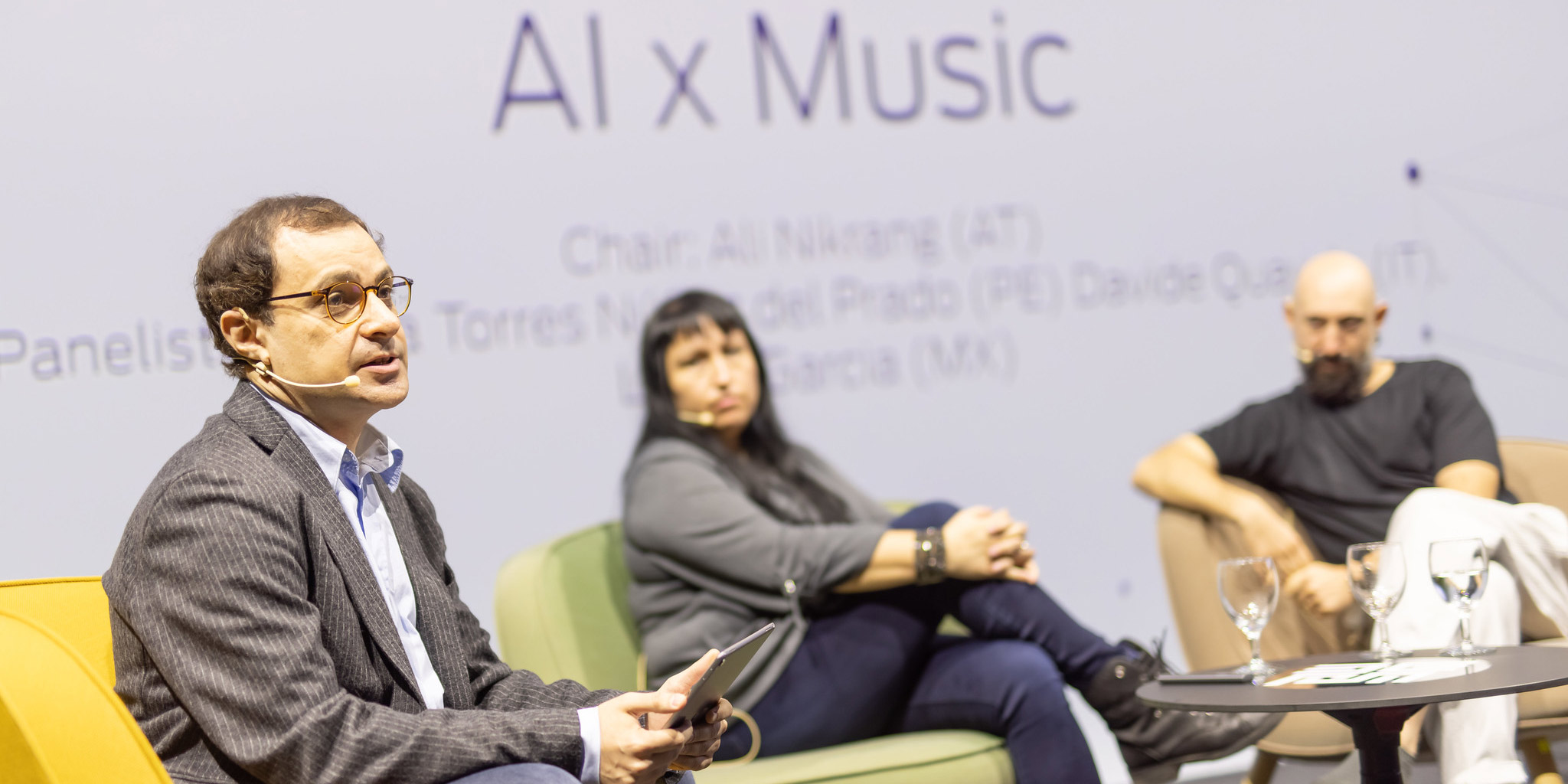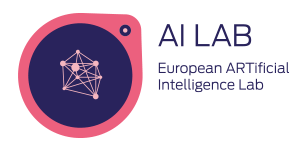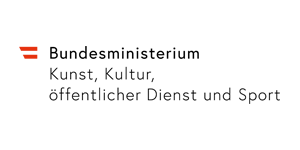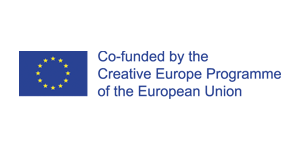Ars Electronica Festival x Mutek Montréal
Speakers: Isabella Salas (MX/QC), Maya Indira Ganesh (IN/DE/UK), Yuri Suzuki (JP/UK)
Moderation: Ali Nikrang (AT)
In recent years, new AI technologies have increasingly been incorporated into fascinating artistic projects. The ability of AI to explore new, previously unknown perspectives of data certainly seems to enable new areas of artistic creation. But it also raises questions about possible forms of collaboration between AI and human artists. Intention plays a great role in the creative process. But how can artistic intention be communicated with an AI system? How does the degree of autonomy of an AI system affect human-AI collaboration? Are less autonomous AI systems better suited for artistic tasks because they give humans more freedom?
In collaboration with Ars Electronica in Linz, this panel invites Japanese sound artist Yuri Suzuki, Mexican-Canadian interdisciplinary artist and producer Isabella Salas, and digital culture researcher and writer Maya Indira Ganesh to critically investigate the question of autonomy and human intention in the creative application of Artificial Intelligence. The panel is hosted by Ali Nikrang, key researcher and artist at the Ars Electronica Futurelab, and is the first of two joint sessions on this topic between the Austrian festival and MUTEK in Montreal.
Moderation:
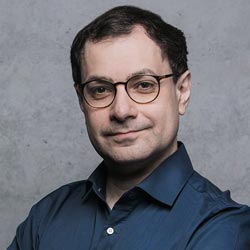 Ali Nikrang (AT): He is a key researcher and artist at the Ars Electronica Futurelab in Linz, Austria. His background is in both technology and art, and his research centers around the interaction between human and AI systems for creative tasks, with a focus on music. He investigates creative outcomes of AI systems and how it can be enhanced and personalized through interactions with human users. As a classical musician and AI researcher, he has been involved in numerous projects combining the two fields. He is the creator of the software Ricercar, an AI-based collaborative music composition system for classical music. In addition, his work has been featured in various conferences and exhibitions around the world, and he has contributed to several TV and radio documentaries on AI and creativity. In 2020, he has received the Young Researcher Award from the Council of Research and Technology in Upper Austria for his work.
Ali Nikrang (AT): He is a key researcher and artist at the Ars Electronica Futurelab in Linz, Austria. His background is in both technology and art, and his research centers around the interaction between human and AI systems for creative tasks, with a focus on music. He investigates creative outcomes of AI systems and how it can be enhanced and personalized through interactions with human users. As a classical musician and AI researcher, he has been involved in numerous projects combining the two fields. He is the creator of the software Ricercar, an AI-based collaborative music composition system for classical music. In addition, his work has been featured in various conferences and exhibitions around the world, and he has contributed to several TV and radio documentaries on AI and creativity. In 2020, he has received the Young Researcher Award from the Council of Research and Technology in Upper Austria for his work.Speakers:
Isabella Salas (MX/QC): Born and raised in Mexico City, Isabella Salas (she/her) moved to Montreal, Canada in 2001 to follow her major in Film Production at Concordia University, specializing in ways of seeing and experimental filmmaking at the EICTV in Cuba. Her interdisciplinary artworks use artificial intelligence, video, synthesized sound, video projection as medium to create multisensorial digital experiences based on neuroaesthetics design. Her work has been presented in reputable contemporary and digital art institutions such as the Societe des Arts et Technologies, MAPP MTL, Music Motion HackLab, MUTEK AI Lab, Immers(ed), MUTEK Festival, Gamma XR Lab, TransArt Festival, Polaris Music Awards, Voltaje Festival, Never Apart Gallery (CA), Electric Artefacts (UK). This fall her works are presented at the Maison de la culture Claude-Léveillée, Anteism Project Space, MAPP Festival, CUNAMEX. In the winter 2022, she will participate in the XR residency IMMENSIVA 2022 at Espronceda Institute of Art and Culture.
Maya Indira Ganesh (IN/DE/UK): She is a tech and digital cultures theorist, researcher, and writer. She has submitted a PhD dissertation in Cultural Sciences at Leuphana University, Lüneburg, Germany. This research examines the political-economic, social, and cultural dimensions of how the ‘ethical’ is being shaped in data-field worlds, rich in histories and imaginaries, of AI and autonomous technologies. Prior to this, she worked at the intersection of gender justice, digital activism, and international development across India, parts of Africa, and SE Asia. Hence her work weds questions of power, justice, and global inequalities to those of language, knowledge, and the body, as mediated by digital technologies. She has also worked with UNICEF India, and the APC Women’s Rights Program. In September 2021, Indira Ganesh will take up a role as co-course leader of a new Master’s program on AI, Ethics, and Society at the University of Cambridge, UK.
Yuri Suzuki (JP/UK): He is a sound artist, designer and electronic musician. His practice explores the realms of sound through designed pieces that examine the relationship between people and their environments, questioning how both music and sound evolve to create personal experiences. Suzuki was born in Tokyo in 1980. After studying industrial design, he worked with Maywa Denki, the Japanese electronic art unit. During this period, Suzuki began exploring the relationship between music and technology. In 2005, he moved to London to study product design at the Royal College of Art, where he further developed his interest in the crossover between art, design, and music, using both analogue and digital technologies to explore this. Suzuki is a Pentagram partner in London and works with a dedicated team of sound designers, graphic designers, developers, and product designers.
Credits
This conference is presented in the framework of the European ARTificial Intelligence Lab, which is co-funded by the Creative Europe Program of the European Union and the Austrian Federal Ministry for Arts, Culture, Civil Service and Sport.
 Ali Nikrang (AT): He is a key researcher and artist at the Ars Electronica Futurelab in Linz, Austria. His background is in both technology and art, and his research centers around the interaction between human and AI systems for creative tasks, with a focus on music. He investigates creative outcomes of AI systems and how it can be enhanced and personalized through interactions with human users. As a classical musician and AI researcher, he has been involved in numerous projects combining the two fields. He is the creator of the software Ricercar, an AI-based collaborative music composition system for classical music. In addition, his work has been featured in various conferences and exhibitions around the world, and he has contributed to several TV and radio documentaries on AI and creativity. In 2020, he has received the Young Researcher Award from the Council of Research and Technology in Upper Austria for his work.
Ali Nikrang (AT): He is a key researcher and artist at the Ars Electronica Futurelab in Linz, Austria. His background is in both technology and art, and his research centers around the interaction between human and AI systems for creative tasks, with a focus on music. He investigates creative outcomes of AI systems and how it can be enhanced and personalized through interactions with human users. As a classical musician and AI researcher, he has been involved in numerous projects combining the two fields. He is the creator of the software Ricercar, an AI-based collaborative music composition system for classical music. In addition, his work has been featured in various conferences and exhibitions around the world, and he has contributed to several TV and radio documentaries on AI and creativity. In 2020, he has received the Young Researcher Award from the Council of Research and Technology in Upper Austria for his work.